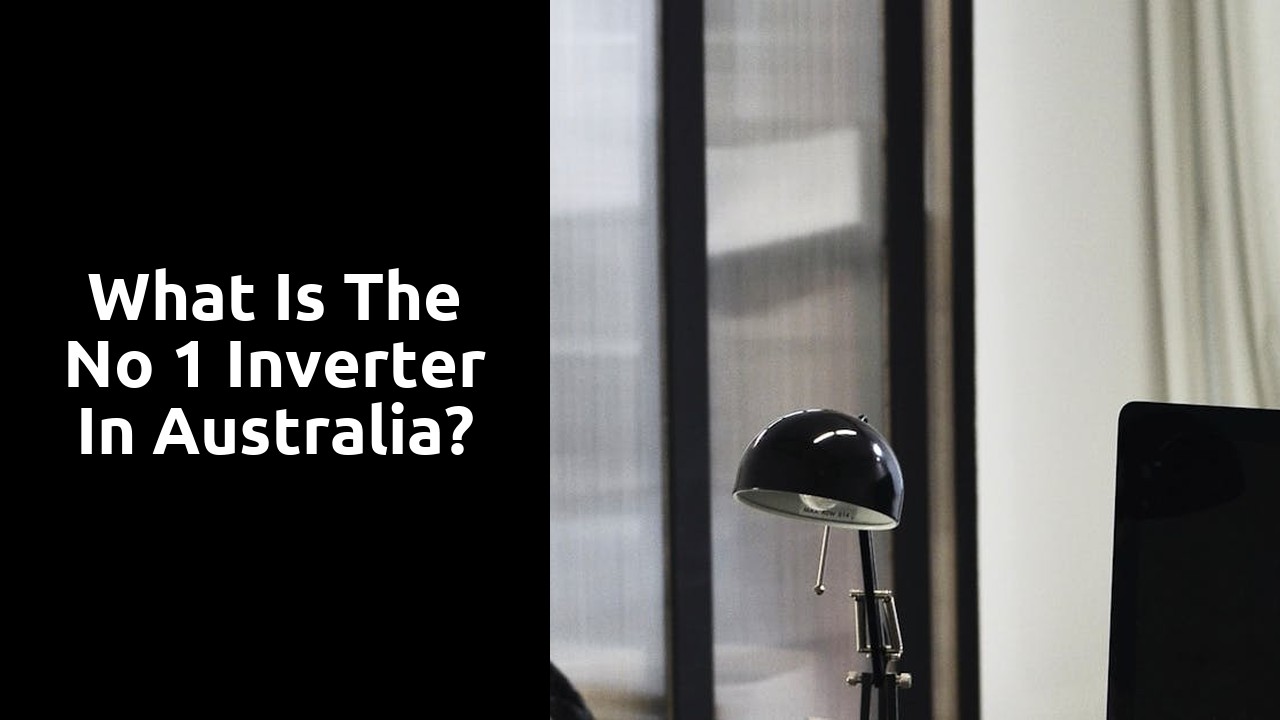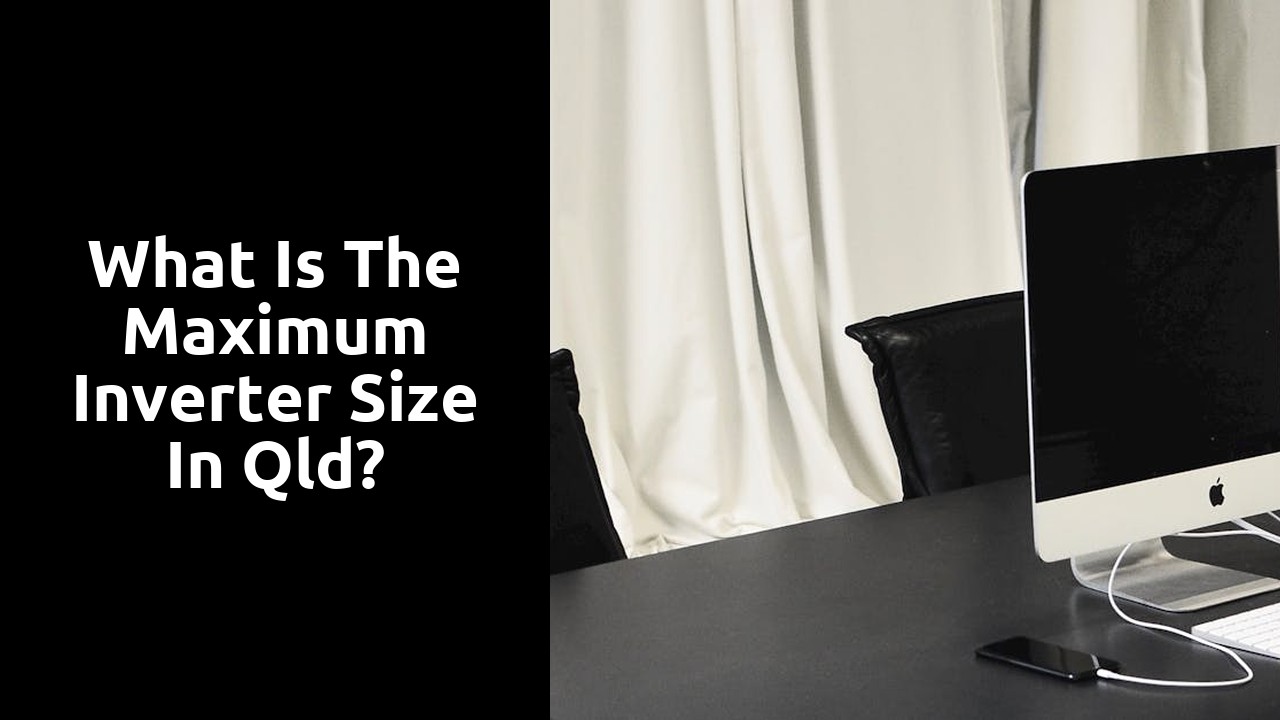
Table Of Contents
Inverter Price and Value
Inverter price and value are key considerations when choosing the right system for your home or business. When investing in a solar inverter system, it's crucial to strike a balance between cost and quality to ensure long-term efficiency and savings. The price of an inverter can vary based on factors such as brand reputation, efficiency ratings, and additional features like monitoring capabilities. To get the most value out of your investment, it's essential to conduct thorough research and consult with professionals in solar inverter system design.
Factors that influence the cost of an inverter include its capacity, technology, and warranty terms. Higher capacity inverters designed for larger residential or commercial setups may come at a premium price due to their enhanced performance capabilities. The technology incorporated in the inverter, such as microinverters or power optimizers, can also affect its price point. Understanding these variables and their impact on the overall system cost is integral to making an informed decision about your solar inverter system design.
Factors that Affect the Cost of an Inverter
There are several factors to consider when evaluating the cost of a solar inverter system in Australia. The type and quality of the inverter can significantly impact the overall price. Premium brands with advanced features may come at a higher cost, but they often offer better efficiency and performance, making them a worthwhile investment in the long run. Additionally, the size and capacity of the inverter play a crucial role in determining its price. Larger inverters capable of handling higher power loads tend to be more expensive than smaller units designed for residential use.
Moreover, the installation complexity and requirements can also influence the cost of a solar inverter system design. Factors such as the location of the installation, any additional accessories needed, and the complexity of the wiring can all contribute to the overall price. It's essential to assess these aspects carefully to ensure that the chosen inverter system meets both the energy needs of the property and the budget constraints of the homeowner. By considering these factors in detail, individuals can make informed decisions when selecting a solar inverter system design for their residential or commercial property.
Best Inverter for Residential Use
When considering the best inverter for residential use in Australia, it is essential to prioritize efficiency and reliability. The country's diverse climate conditions, including intense heat and occasional storms, require an inverter that can withstand such variations. Therefore, selecting an inverter with a robust build and strong performance under different weather scenarios is key. Additionally, focusing on inverters that offer smart monitoring capabilities can provide homeowners with real-time data on their energy production and consumption, enabling better management of their solar energy system.
Moreover, tailoring your choice of inverter to match your home's energy needs is crucial for optimizing the performance of your solar energy system. By assessing your household's electricity usage patterns and peak energy demands, you can select an inverter that complements the size and output of your solar panels. This approach ensures that your Solar Inverter System Design is tailored to suit your specific requirements, maximizing the overall efficiency and output of your residential solar energy system.
Tailoring Your Inverter Choice to Your Home's Energy Needs
When it comes to choosing the right inverter for your home's energy needs, a crucial aspect to consider is the size of your solar system. The inverter you select must be compatible with the capacity of your system to ensure optimal performance. It is essential to accurately assess the energy requirements of your household and select an inverter that can efficiently handle the power generated by your solar panels. By aligning the inverter's capacity with your energy consumption patterns, you can maximise the effectiveness of your Solar Inverter System Design while minimising energy wastage.
Furthermore, the type of inverter you choose should complement the layout and configuration of your solar panels. Whether you have a roof-mounted or ground-mounted system, the design of your solar array can impact the performance of your inverter. Factors such as shading, tilt angle, and panel orientation play a significant role in determining the efficiency of your Solar Inverter System Design. Therefore, ensuring that your chosen inverter is well-suited to your specific installation setup is vital for achieving optimal energy production and cost-effectiveness over the long term.
Commercial Grade Inverters
Commercial grade inverters are designed to meet the rigorous demands of business applications, offering robust performance and reliability for larger scale solar energy systems. These inverters are built with high-quality components to ensure long-term efficiency and functionality. When considering a commercial grade inverter for a Solar Inverter System Design, it is essential to prioritize scalability and output capacity to accommodate the energy needs of the commercial establishment.
In addition to scalability, performance considerations play a crucial role in selecting the right commercial grade inverter. Factors such as efficiency ratings, monitoring capabilities, and grid compatibility should be evaluated to ensure optimal performance and seamless integration with the existing solar power infrastructure. By focusing on these key elements, businesses can effectively harness the potential of solar energy and maximize their return on investment with a reliable commercial grade inverter.
Scalability and Performance Considerations for Business Applications
When considering Solar Inverter System Design for business applications, scalability and performance are critical factors to contemplate. Scalability refers to the system's ability to adapt and expand according to the growing energy needs of a commercial setting. Having a scalable solar inverter system design is vital for businesses looking to increase their energy production in the future without overhauling the entire setup. It allows for seamless integration of additional panels or batteries as the business expands, ensuring long-term viability and efficiency.
Performance considerations play an equally significant role in determining the suitability of a solar inverter system design for commercial use. The performance of the inverter directly impacts the efficiency and output of the entire solar energy system. Businesses should focus on selecting inverters that offer high efficiency ratings, robust monitoring capabilities, and reliable performance under varying conditions. Opting for commercial-grade inverters that prioritise performance ensures that the solar energy system operates optimally, maximising energy generation and cost savings for the business.
FAQS
What factors determine the ranking of the No 1 inverter in Australia?
The No 1 inverter in Australia is determined based on factors such as performance, reliability, efficiency, and customer satisfaction.
Is the No 1 inverter in Australia suitable for residential use?
Yes, the No 1 inverter in Australia is highly recommended for residential use due to its superior performance and reliability.
How can I tailor my choice of inverter to match my home's energy needs?
To match your home's energy needs, consider factors such as the size of your home, energy consumption patterns, and the type of appliances you use when selecting the No 1 inverter in Australia.
Are commercial grade inverters different from residential inverters?
Yes, commercial grade inverters are designed for larger energy loads and are built to withstand the demands of business applications, making them ideal for commercial use.
What scalability and performance considerations should businesses keep in mind when choosing an inverter?
Businesses should consider factors such as the scalability of the inverter system, its compatibility with existing infrastructure, and its ability to deliver consistent performance when selecting the No 1 inverter in Australia for commercial applications.
